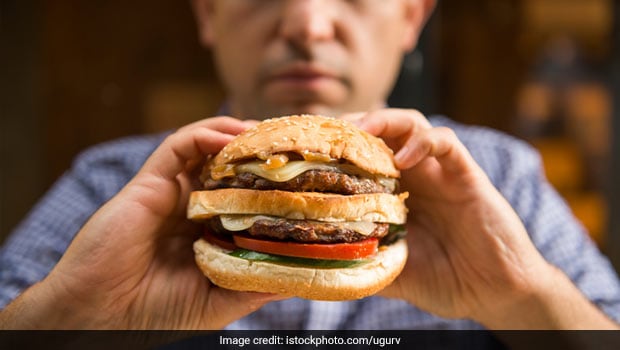Just a few hours after I have had my dinner, especially when I am binge-watching my favourite TV show on Netflix, I suddenly get this urge to eat something sweet – the leftover chocolate cake or maybe an ice-cream. Sometimes this sudden urge of eating food is so strong that I get up and head towards the kitchen and make myself a cup of cold coffee with ice-cream or convince my sister to make halwa for me. I am sure that most of you can relate with my story. But, has it ever happened to you when you have had a bad day and just when you are heading home, you come across a cafe and think of treating yourself with 2 or maybe 3 donuts and some chocolate cookies? Perhaps, this was not enough that you also ate an entire box of chocolate and had one big glass of mango shake before hitting your bed, feeling stuffed and little sick.

Eating one or two slice of chocolate cake is emotional eating, but eating the whole cake by yourself is binge eating.
We all must have heard people complaining that they have eaten a lot – high-calorie and high-fat sugary food – because they were emotional. This is very natural and we all do it too, right? Whenever we feel sad or end up having a crappy day at work, we balance it out by eating a lot of food, as it makes us feel better about the situation. However, there is a huge difference between emotional eating or binge eating. Eating one or two slice of chocolate cake is emotional eating, but eating the whole cake by yourself is binge eating. Having said that, we are going to talk about binge eating and emotional eating that might sound similar but are poles apart.
What Is Emotional Eating?
Emotional eating, also known as comfort eating or stress eating, happens when you end up feeling hungry because of emotional trauma. You eat reasonable portions but do not allow yourself to overeat other foods since you are indulged in one. Eating until you feel sick is not emotional eating. According to experts, comfort eating is not a disorder or disease; it is referred to as an imbalance of hormoneswhich can be managed by distracting yourself in other healthy activities like yoga or meditation.
(Also Read: 5 Foods To Help You Detox After New Year’s Eve Bingeing)

Eating until you feel sick is not emotional eating.
What Is Binge Eating?
Binge eating, unlike emotional or stress eating, is usually planned. According to experts, binge eating is a disorder, which is known as Binge Eating Disorder (BED), and has a few common symptoms like eating even when you are not hungry, constantly feeling guilty about eating and regular dieting to lose weight. A person who indulges in binge eating is over-consuming calories with absolutely no attention to hunger. This situation occurs because there is mental permission given to eat whatever is available in unlimited volumes.
(Also Read: 5 Ways To Avoid Over-Eating At Night!)

A person who indulges in binge eating is over-consuming calories with absolutely no attention to hunger.
Precautionary Measures
Emotional eating is not a disease or any disorder, whereas, binge eating is and needs medical attention. The best ways to control the situation is to:
- Change the environment, meaning zero accessibility to tempting foods. Take yourself out of the environment in which the binge usually occurs.
- See a doctor and take corrective measures before it turns ugly.
There are situations wherein we fail to understand that our body and mind are going through a time of intense difficulty. Therefore we need to keep a track on our lifestyle and try to follow healthy eating habits.



















